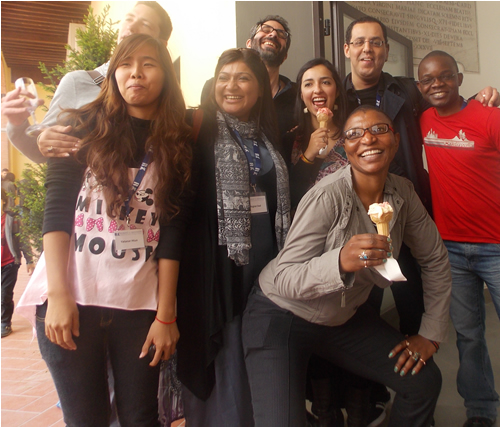A question was asked during an election reporting workshop concerning how journalists and civic organisations can report or walk the fine line between bringing knowledge to the people and not attract the wrath of the authorities who have criminalised voter education.
It highlighted the problem many have with the conditions that prevail as the country prepares for elections whereby while political parties are encouraging supporters to vote on one hand, and on the other institutions expected to play a role in ensuring that the same voters make informed decisions being fettered by the threat of imprisonment.
Anyone seeking to make inroads into remote rural areas for example to “educate” voters does that at their own peril, and it has to be queried how then a people known to have no access to radio, TV and newspapers are supposed to participate in processes they have no clue about.
It could well be a replay of the referendum where voters merely followed instructions from their political parties and vote for issues they have no clue about.
And because this is a high stakes poll, we can expect all voters to be denied by the usual suspects all the information they need to make informed decisions.
This buttresses the charge that rural folks are “instructed” or “persuaded” with brute force who to vote for, and we have already read about Jabulani Sibanda “frightening” villagers in Lupane, which is just the beginning of worse things to come.
Common sense would tell you that the period in the run-up to elections provides insight into the credibility of any poll, and Sibanda’s reported actions in rural Matebeleland only serve to cast more doubt into the country’s – or Zanu PF’s seeing that he is a Zanu PF functionary – commitment to creating conditions “ideal for a free and fair election.”
And because these rural constituencies have rather unflatteringly been labeled as “unsophisticated” they are seen as very malleable in the hands of political hoodlums, and it is here where an informed voter can take charge of their political circumstances and indeed political future.
Thus we hear exhortations from some quarters that the rural folks must remain docile and allow themselves to be herded to rallies but make their choices known inside the voting booth!
A famous Tony Namate cartoon back in the 1990s actually has a peasant woman mischievously winking as she puts her “X” on a candidate contesting against Zanu PF, and while such commentary did indeed help magnify the extent of what has become a post-independence millstone around our necks, Zanu PF has still been able to claim the vote, raising questions whether if at all rural folk “vote freely.”
But it’s a debate that will take forever as some have already opined that Zanu PF has never allowed defeat to stand in the way to claim victory!
It thus has become a well-worn cliché that access to information is the bedrock of all electoral processes and democracy, yet we find ourselves doing the same things over, and over but still expecting to get different results.
It is essentially because of this that some of the most vocal people you meet in the street criticizing the status quo go to the pub instead when other citizens join long queues under the blazing African sun to cast their vote!
Another issue to look out for again this year would be the spread of newspapers, which areas they reach as they seek to report about the pre-election climate.
Yet one thing that has precedence is the “outlawing” of certain titles from certain areas where reading a particular paper has in the not-so-distant past been a punishable offence with vigilantes using cudgels on fellow villagers for merely reading a newspaper of their choice.
To an outsider it sounds crazy, but this is what we can expect in the coming months, that is if it is not happening already.










